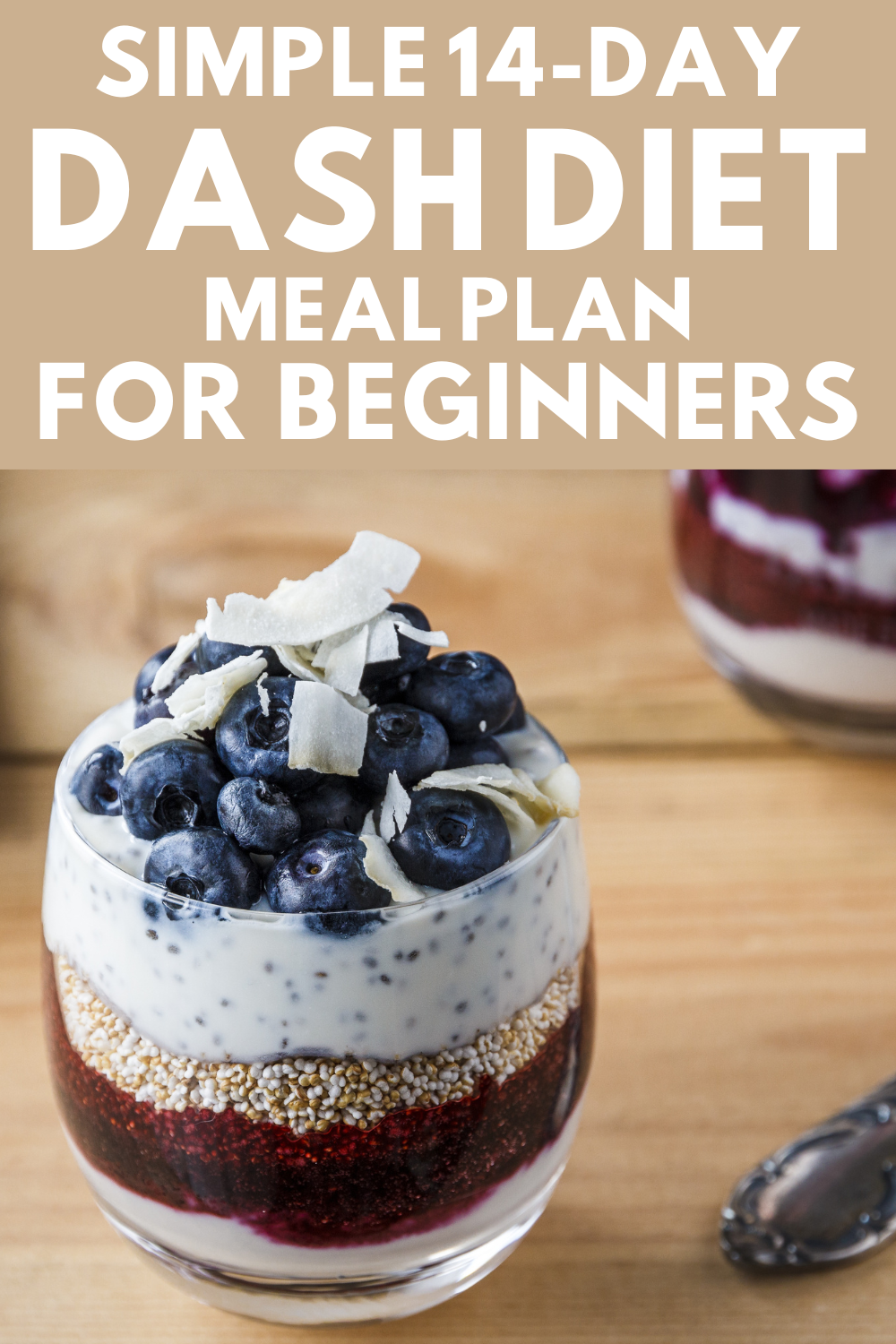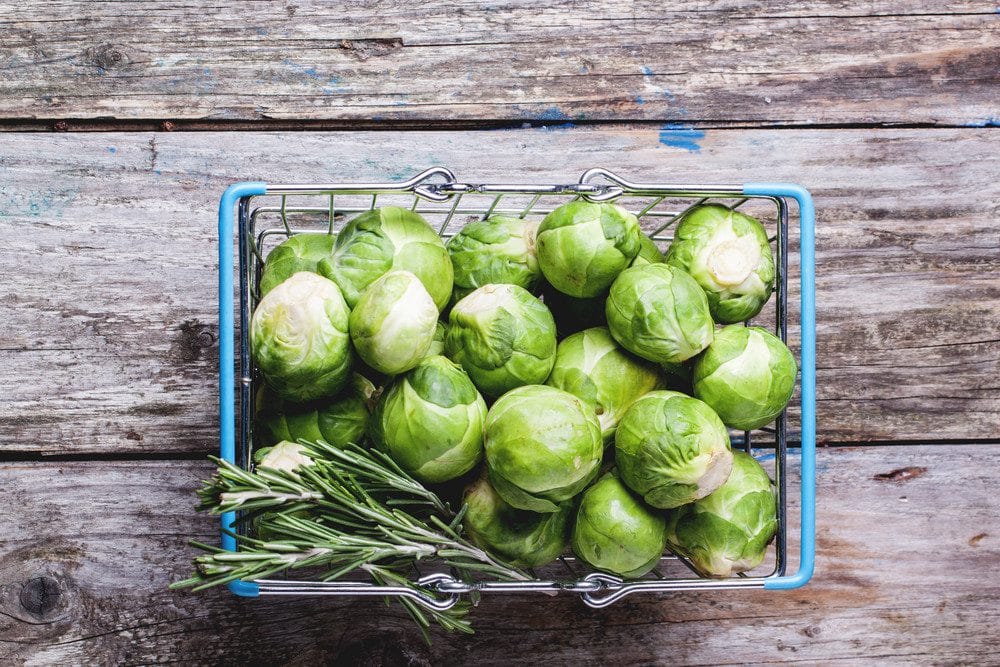
Ready to feel amazing? The DASH diet isn’t just about lowering blood pressure (though it does that rockstar-ly!), it’s about giving your whole body the love it deserves with delicious, nutritious food. Think fresh fruits & veggies, lean protein, and whole grains – all working together to boost your energy, manage weight, and keep your heart happy.
But where to start? This 14-day meal plan is your friendly guide! We’ve packed it with easy, flavorful recipes and helpful tips to get you started on your DASH adventure.
What is the DASH Diet?
The DASH diet, an acronym for Dietary Approaches to Stop Hypertension, is a comprehensive and scientifically proven eating plan designed to lower blood pressure, promote overall cardiovascular health, and aid in weight loss. Unlike restrictive fad diets, the DASH diet encourages sustainable dietary changes by emphasizing the consumption of nutrient-rich foods while limiting sodium intake.
The DASH diet offers two variations to suit individual needs: the Standard DASH Diet, which limits sodium intake to 2,300 milligrams per day, and the Lower-Sodium DASH Diet, which caps sodium consumption at 1,500 milligrams per day. Both plans recommend a balanced daily intake of whole grains, fruits, vegetables, lean proteins, and low-fat or fat-free dairy products, along with moderate portions of healthy fats and oils.
By prioritizing whole, unprocessed foods, the DASH diet naturally reduces the intake of high-calorie, sugary, and fatty foods that contribute to high blood pressure, heart disease, stroke, and unwanted weight gain. The abundance of fruits and vegetables ensures a rich supply of essential micronutrients that further support cardiovascular health and promote satiety.
In addition to its numerous health benefits, the DASH diet’s emphasis on nutritious, whole foods and balanced portion sizes makes it an effective and sustainable approach to weight loss. By adopting the DASH diet’s principles, individuals can improve their overall health, lower their blood pressure, and achieve their weight loss goals.
Is the DASH Diet Good for Weight Loss?
The DASH diet, initially developed to manage blood pressure, has emerged as an effective and sustainable approach to weight loss. This comprehensive eating plan prioritizes nutrient-dense whole foods, including fruits, vegetables, low-fat or fat-free dairy, whole grains, and lean meats like fish and poultry. By eliminating processed foods, sugary drinks, and packaged snacks, limiting red meat consumption, and reducing sodium intake, the DASH diet promotes sustainable weight loss and overall health improvement.
The emphasis on whole foods and balanced portion sizes encourages satiety, reducing cravings and overeating, while the elimination of processed foods and sugary beverages minimizes calorie intake from unhealthy sources. Additionally, the DASH diet’s focus on lean protein sources and healthy fats supports muscle maintenance, which contributes to a higher metabolic rate and further aids in weight loss.
The DASH diet’s comprehensive approach to nutrition not only promotes weight loss but also supports overall cardiovascular health, reduces the risk of chronic diseases, and enhances energy levels. By adopting the DASH diet’s principles and incorporating regular physical activity, individuals can achieve their weight loss goals and embark on a journey towards a healthier lifestyle.
30 Foods to Eat and Avoid on the DASH Diet
Foods to Eat on the DASH Diet
-
Lean proteins: Opt for skinless chicken, fish, and other lean protein sources to provide essential amino acids without excess saturated fat.
-
Whole grains: Replace refined grains with whole grains like oatmeal, brown rice, quinoa, whole wheat bread, and whole wheat pasta for a richer source of fiber, vitamins, and minerals.
-
Fruits: Enjoy a variety of colorful fruits, including bananas, apples, dates, grapes, oranges, peaches, and strawberries, to reap the benefits of their antioxidants, vitamins, and fiber.
-
Vegetables: Incorporate a rainbow of vegetables, such as broccoli, carrots, collard greens, potatoes, and spinach, to gain essential vitamins, minerals, and fiber that support overall health.
-
Low-fat dairy products: Include low-fat milk, cheese, and yogurt in your diet for a rich source of calcium, vitamin D, and protein.
-
Nuts and seeds: Snack on nuts and seeds like almonds, walnuts, sunflower seeds, and peanut butter to benefit from their healthy fats, fiber, and protein content.
-
Legumes: Include legumes like kidney beans and lentils in your meals to boost your intake of fiber, protein, and essential minerals.
-
Heart-healthy oils: Choose heart-healthy oils like olive oil, canola oil, and safflower oil for cooking and salad dressings as they provide monounsaturated and polyunsaturated fats that benefit cardiovascular health.
-
Limited amounts of sweeteners: While occasional indulgence in sweeteners like maple syrup, jelly, and sorbet is acceptable, prioritize naturally sweet fruits and limit added sugars to maintain overall health.
Foods to Avoid on the DASH Diet
-
Fatty red meats: Reduce intake of high-saturated fat meats like bacon, beef, pork, lamb, and veal, as they can contribute to elevated cholesterol levels.
-
Full-fat dairy products: Replace full-fat dairy products with low-fat or fat-free alternatives to reduce saturated fat intake while maintaining a good source of calcium and protein.
-
Sugar-sweetened beverages: Limit consumption of sugary drinks like sodas, fruit juices, and energy drinks, as they are high in added sugars and calories that can contribute to weight gain and other health issues.
-
Sweets: Minimize intake of processed sweets like candy, cookies, and pastries, as they are often high in added sugars, unhealthy fats, and refined carbohydrates.
-
Chips and salted nuts: While nuts can be a healthy snack, opt for unsalted varieties and limit consumption of salty snacks like chips and pretzels to manage sodium intake.
-
Pre-packaged foods: Avoid relying on pre-packaged meals, frozen pasta dishes, and other convenience foods, as they often contain high amounts of sodium, unhealthy fats, and added sugars.
-
Fast foods: Limit or avoid fast food options like pizza, burgers, and French fries, as they are typically high in calories, unhealthy fats, and sodium.
-
Cheese, cream, and butter: Reduce consumption of full-fat dairy products like cheese, cream, and butter, as they can contribute to saturated fat intake and elevate cholesterol levels.
-
Cold cuts and cured meats: Limit intake of cold cuts, salami, and other cured meats, as they are often high in sodium and unhealthy fats.
-
White breads, rolls, and sandwiches: Replace refined white bread products with whole-grain alternatives to increase fiber intake and reduce the impact on blood sugar levels.
-
Whole milk: Opt for low-fat or fat-free milk options to reduce saturated fat intake while still maintaining a good source of calcium and protein.
14-Day DASH Diet for Weight Loss Meal Plan
Day 1
- Breakfast: Oatmeal with berries and nuts
- Snack: Apple slices with peanut butter
- Lunch: Salad with grilled chicken or fish
- Snack: Banana
- Dinner: Baked salmon with roasted vegetables
Day 2
- Breakfast: Yogurt parfait with fruit and granola
- Snack: Carrot sticks with hummus
- Lunch: Whole-wheat wrap with vegetables and hummus
- Snack: Orange
- Dinner: Grilled chicken breast with quinoa and steamed vegetables
Day 3
- Breakfast: Whole-wheat toast with avocado
- Snack: Trail mix with nuts, seeds, and dried fruit
- Lunch: Lentil soup
- Snack: Grapes
- Dinner: Vegetarian chili
Day 4
- Breakfast: Smoothie made with fruit, yogurt, and protein powder
- Snack: Greek yogurt with fruit and granola
- Lunch: Tuna salad sandwich on whole-wheat bread
- Snack: Apple
- Dinner: Shrimp scampi with whole-wheat pasta
Day 5
- Breakfast: Eggs with whole-wheat toast and vegetables
- Snack: Hard-boiled egg
- Lunch: Turkey chili
- Snack: Pear
- Dinner: Turkey meatballs with spaghetti squash
Day 6
- Breakfast: Pancakes made with whole-wheat flour and fruit
- Snack: Rice cakes with avocado
- Lunch: Veggie burger on a whole-wheat bun
- Snack: Peach
- Dinner: Tofu stir-fry with brown rice
Day 7
- Breakfast: Breakfast burrito made with eggs, beans, vegetables, and salsa
- Snack: Cottage cheese with pineapple chunks
- Lunch: Chicken or fish stir-fry with brown rice
- Snack: Nectarine
- Dinner: Chicken or lentil soup
Day 8:
- Breakfast: Greek yogurt with berries and nuts
- Snack: Apple slices with almond butter
- Lunch: Grilled chicken salad with mixed greens, tomatoes, cucumbers, and a light vinaigrette dressing
- Snack: Rice cakes with guacamole
- Dinner: Baked cod with roasted asparagus and quinoa
Day 9:
- Breakfast: Overnight oats with chia seeds, almond milk, and berries
- Snack: Carrot sticks with hummus
- Lunch: Lentil soup with whole-wheat bread
- Snack: Greek yogurt with fruit and granola
- Dinner: Grilled tofu with stir-fried vegetables and brown rice
Day 10:
- Breakfast: Whole-wheat toast with avocado and a poached egg
- Snack: Trail mix with nuts, seeds, and dried fruit
- Lunch: Black bean soup with a side salad
- Snack: Hard-boiled egg
- Dinner: Baked salmon with roasted Brussels sprouts and sweet potatoes
Day 11:
- Breakfast: Smoothie made with fruit, yogurt, and protein powder
- Snack: Banana
- Lunch: Turkey sandwich on whole-wheat bread with lettuce, tomato, and avocado
- Snack: Trail mix with nuts, seeds, and dried fruit
- Dinner: Chicken stir-fry with mixed vegetables and brown rice
Day 12:
- Breakfast: Whole-wheat pancakes with fruit and maple syrup
- Snack: Carrot sticks with hummus
- Lunch: Salad with grilled chicken or fish, mixed greens, tomatoes, cucumbers, and a light vinaigrette dressing
- Snack: Rice cakes with avocado
- Dinner: Baked salmon with roasted broccoli and quinoa
Day 13:
- Breakfast: Overnight oats with chia seeds, almond milk, and berries
- Snack: Apple slices with almond butter
- Lunch: Lentil soup with whole-wheat bread
- Snack: Greek yogurt with fruit and granola
- Dinner: Grilled tofu with stir-fried vegetables and brown rice
Day 14:
- Breakfast: Whole-wheat toast with avocado and a poached egg
- Snack: Trail mix with nuts, seeds, and dried fruit
- Lunch: Black bean soup with a side salad
- Snack: Hard-boiled egg
- Dinner: Baked salmon with roasted Brussels sprouts and sweet potatoes
As you conclude your journey through the DASH diet’s principles and practices, you’ve undoubtedly experienced a transformation in your overall well-being. The DASH diet, with its emphasis on nutrient-dense whole foods and balanced portion sizes, has not only provided a roadmap for effective weight loss but also empowered you to make informed food choices that support your cardiovascular health and overall well-being.
Embrace the DASH diet as more than just a temporary fix for blood pressure control or weight loss. View it as a sustainable lifestyle shift that empowers you to prioritize your health and nurture your body with the nourishment it deserves. By incorporating the DASH diet’s principles into your daily life, you’re investing in a future filled with vitality, resilience, and a renewed sense of well-being.
Remember, the DASH diet is not about deprivation or restrictions; it’s about abundance and empowerment. It’s about embracing a world of flavorful, nutritious foods that support your body’s natural ability to thrive. As you continue your DASH diet journey, continue to explore new recipes, discover new flavors, and cultivate a deeper appreciation for the connection between food and well-being.
Congratulations on embarking on this journey of self-discovery and transformation through the DASH diet. May this newfound knowledge and experience empower you to make informed food choices that support your health and well-being for years to come.
Resources:
-
“The DASH diet: A review of its potential for improving mood and cognitive function.” by Patricia M. Davidson, Tamara D. Harris, and Cheryl A. Anderson in the journal Nutrition Research and Reviews (2018). This study found that the DASH diet may improve mood and cognitive function in adults with high blood pressure.
-
“The effects of the Dietary Approaches to Stop Hypertension (DASH) diet on weight loss and cardiovascular risk factors in adults with overweight or obesity.” by Steven D. Malin, Penny M Kris-Etherton, Frank M Sacks, et al. in the journal Obesity Research (2000). This study found that the DASH diet can help adults with overweight or obesity lose weight and improve their cardiovascular risk factors.
-
“The DASH diet: An effective approach to lowering blood pressure and promoting overall well-being.” by the American Heart Association. This website provides a comprehensive overview of the DASH diet, including its benefits, how to follow it, and sample meal plans.
-
“The DASH diet for weight loss: A review of clinical trials.” by Frank M Sacks, Penny M Kris-Etherton, Steven D Malin, et al. in the journal American Journal of Clinical Nutrition (2006). This study found that the DASH diet is an effective and sustainable approach to weight loss.
-
“The DASH diet: A review of its potential for weight management and prevention of metabolic syndrome.” by Patricia M Davidson, Tamara D Harris, and Cheryl A Anderson in the journal Advances in Nutrition (2016). This study found that the DASH diet may help prevent the development of metabolic syndrome, a group of risk factors that increase the risk of heart disease, stroke, and type 2 diabetes.
-
“The DASH diet: A healthy eating plan for everyone.” by the National Heart, Lung, and Blood Institute. This website provides information about the DASH diet, including its benefits for weight loss, how to follow it, and sample meal plans.












